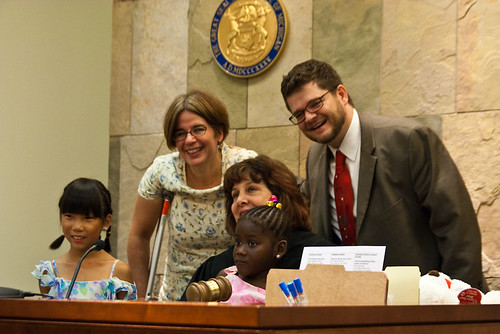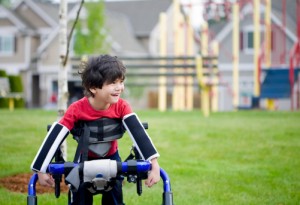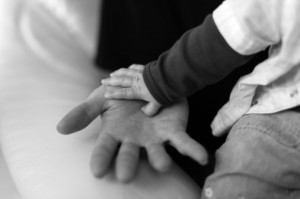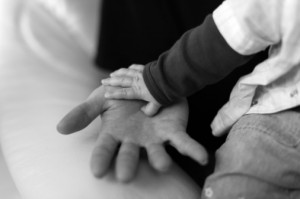
Photo source : http://bit.ly/1dxAtqR
We have all heard the old saying: “when one door closes, another one opens.” However, when it comes to Florida adoptees finding their birth parents, it seems that too many doors are slammed shut.
The Internet has made it easier than ever before for adoptees to find their birth parents. There are numerous Florida adoption registries and databases that can be used as references and social media has provided another great way for birth parents and adoptees to connect. In many states, birth records that were once sealed are now open, giving full access to adoptees to find out vital information about their birth parents.
However, Florida doesn’t happen to be one of those progressive states.
The History of Open Adoptions
Actually, most adoptions used to be open adoptions until the twentieth century. Adoption was seen as a process where one family who potentially couldn’t afford to house and feed all their children had them adopted by another family as “an apprentice.” The families met each other and often stayed in contact. Adoptions were very informal – if a woman unexpectedly became pregnant, she could give the child to whomever she wanted. There were no adoption agencies or intermediaries who facilitated the process. No legal papers were signed and there was no government involvement. However, there was also no way to check on the welfare of the child.
During the Victorian era, everything changed. An unwed mother was often sent away from her family to have her baby in secret. She was perceived a “loose” and “immoral” and her child was often taunted with names like “illegitimate” or “a bastard”.
In 1941, the US Children’s Bureau adopted a practice where birth records were sealed for confidentiality reasons, including the child’s original birth certificate. Another birth certificate was issued with the adopted parent’s name only and the original adoption record was sealed. Often adopted children didn’t even know they were adopted and grew up believing their adoptive parents were their biological parents.
During the 1960s and 1970s, the shame placed on unmarried women began to ease and women started wanting to choose the adoptive parents. At the same time, many children who were adopted wanted to know their medical histories and began to search for their biological parents. Societal rules changed once again and the trends began to move toward more “open adoptions” which in fact was a new term for an old practice.
According to the Adoption Institute, 40% of adoptions are now mediated, 55% are open and only 5% are closed. In fact, it has become so prevalent that 95% of adoption agencies now offer open adoptions.
Florida’s Views on Open Adoptions
Although open adoptions have become more popular, birth mothers in Florida and many other states have no legal rights to have ongoing contact with their children. Instead, what is known as an Ongoing Contract Agreement is formed, which is an agreement between the biological parents and the adoptive parents to have informal ongoing contact. This arrangement is not a legal binding contract. If the adopted parents decide to move or change their contact information, they are under no legal obligation to update the biological parents.
Why?
Because some people still hold to the notion that openadoptions will lead to an increase in abortion rates or that “closed adoptions” are better for women victimized by rape or incest. According to Jeanne Tate, a Tampa adoption attorney, “we have to balance the rights of adoptees to know about their past with the rights of the birth parents to confidentiality and anonymity when they chose adoption.” However, this type of rational makes it more difficult for children who are adopted to find their birth parents.
Only four states – Kansas, Alaska, Oregon and Alabama – allow unconditional adoptee access.In Scotland, adoptions have been open since 1930 and in England since 1975. Sweden, The Netherlands, and Germany are just a few of the countries that don’t prevent adoptees from accessing their own birth records. Without a doubt, Canada and the United States are far behind in opening adoption records.
A Case for Open Adoptions in Florida
Currently, Florida only has four types of adoption that are legally recognized: the entity adoption (where an agency or intermediary is involved), the step-parent adoption, the close relative and an adult adoption. Although more and more adoptions are conducted with an Ongoing Contract Agreement, Florida and many other states have yet to legalize this process even though studies show that open adoptions are preferable.
This antiquated thinking works to the disadvantage of all parties. Children who are adopted do not have access to their medical histories and too often grow up feeling abandoned, with no answers to some important questions and no contact with birth relatives. Birth mothers feel guilty and depressed if they can’t keep tabs on the welfare of their child moving forward. And for the adopted parents, they may be left to wonder what the birth mother’s intentions are moving forward.
Since adoptions are controlled at the state level, adoptive parents often have to gain approval from the state in which the child is being adopted and the state where the child will reside. This creates legal confusion.
Ideally, there will be federal laws governing adoptions that allow both open and closed adoptions. There should be a single standard for adoptions nationwide to eliminate the stress and confusion that currently plagues the adoption community.
**Disclaimer: Under Florida State Law, there is no such thing as “Open Adoption”, “Closed Adoption”, or “Semi-Closed Adoption”. We use these terms herein since they are popular terminologies, however again, they have no legal meaning under Florida State Law**
About The Author
Jeffrey A. Kasky, Esq. is a Florida adoption lawyer and Vice President of One World Adoption Services, Inc., a Florida-licensed not-for-profit child placing agency. Jeff’s diverse career experiences include co-authoring the book, “99 Things You Wish You Knew Before … Choosing Adoption” with Robert A. Kasky, Florida-certified law enforcement officer, and involvement in the autism community, including a TV show focused on helping families with legal issues related to autism called “Spectrum at Law” on The Autism Channel. A practicing attorney since 1995, he has worked on more than one thousand adoption cases.




